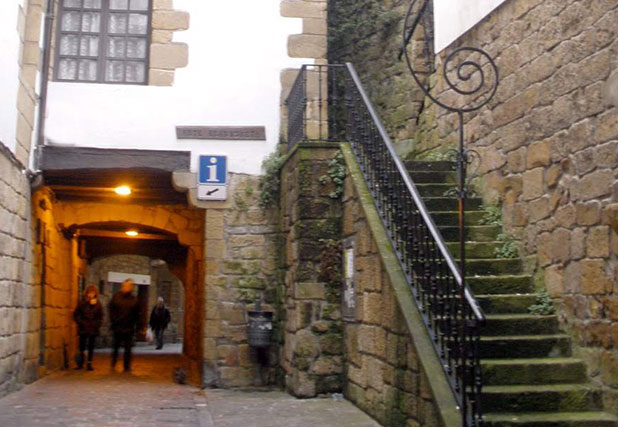In Itxas Zerbi Servicios Marítimos, we are in charge of providing the regular transportation service
Victor Hugo, poet
![]() Born in Besançon on February 26, 1802, Victor Hugo, poet, dramatist, essayist, novelist, critic, politician, draftsman and painter, was perhaps the greatest exponent of French literature and universal Romanticism of the nineteenth century.
Born in Besançon on February 26, 1802, Victor Hugo, poet, dramatist, essayist, novelist, critic, politician, draftsman and painter, was perhaps the greatest exponent of French literature and universal Romanticism of the nineteenth century.
Victor Hugo was one of the few people whose enormous talent was acclaimed during his lifetime. His funeral on May 22, 1885 drew over two million people.
In summer of 1843, Victor Hugo (1802-1885) did not decide to visit us, he happened to be here. He was travelling through the occidental area of the Pyrenees, and walking for San Sebastian, through the Ulia Mountain, he arrived to San Pedro. The « bateleras », the brave women in charge the communication between « the new and the old Pasaia », brought him up to here. He was so charmed with everything he contemplated that he decided to stay here for a time, exactly in the house which actually is known as Victor Hugo’s House. As he was a good observer, he did not waste the chance to do a great description of the scene, involving realism with respect, humanism, enthusiasm and even with irony.
Every writings and notes he took during his journey are written like a diary in the book « The Pyrenees », published by Fredonia books. It includes Hugo’s some illustrations.
Victor Hugo, besides having an extraordinary literary talent, was a great upholder of the Universal Causes. His biography reflects the caress of tenderness, his sharp sensitiveness, his visionary idealism… ; he did not give us just beautiful words, he showed us his « contemplation », how to observe with the spirit, and that is what the great descriptions about this house an its residents demonstrated.
“A curtain of tall green mountains, their summits standing out against a brilliant sky ; at the foot of the mountains a row of houses placed closely together; all the houses painted white, saffron, and green, with two or three tiers of large balconies shaded by the prolongation of their great, red, hollow-tiled roofs; on all the balconies a thousand fluttering things, linen drying, nets, rags-red, yellow, and blue; beneath the houses, the sea; half-way up the hill on my right, a white church; on my left, in the foreground, at the foot of another mountain, another group of balconied houses terminating in an old dismantled tower; vessels of every kind and boats of every size ranged before the houses, moored beneath the tower, gliding over the bay; about the ships, the tower, the houses, the church, the rag on the mountains and in the sky, a life, a movement, a warmth, a blueness, an atmosphere, a gaiety inexpressible,-this was what I had before my eyes.”
